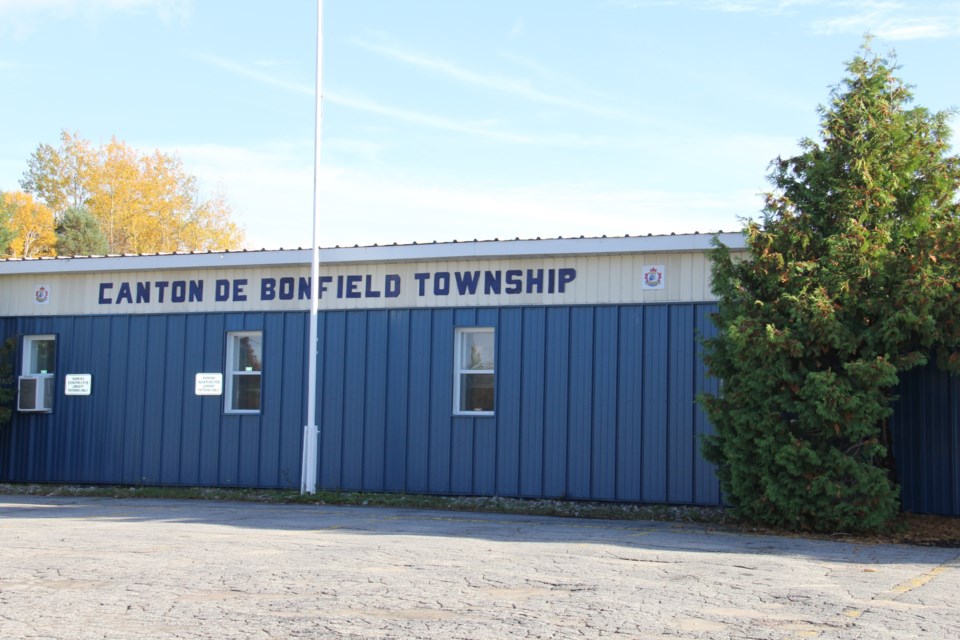The topic of trailers was raised recently at Bonfield’s council meeting, as resident Adrien Foisy joined councillors via Zoom “to suggest some ideas to make Bonfield better.”
His suggestion was to implement an additional tax for those wishing to park trailers on their land year-round within the municipality.
“I’ve talked with a lot of people,” Foisy told council, “and we’re willing to pay $600 a year to help Bonfield.”
His suggestion did not receive much response. Councillor Jane Lagassie asked how he came up with the $600 figure?
“It’s just an example,” Foisy said, “let’s try to get along is all I’m saying.”
Recently, the township updated their rules pertaining to the parking and storing of trailers and other recreational vehicles.
They offer a working definition of recreational vehicles (RV) as a vehicle used “for temporary” eating and sleeping, including “tourist trailers, tent trailers, and campers mounted on motorized vehicles, or towed” but not requiring a special highway movement permit.
Can an RV be used as my dwelling? No, Bonfield says, noting an RV is not a residential building under the Ontario Building Code. Dwellings are defined as buildings “capable of being occupied as a home, residence or accommodation” and does not include hotels, motels, rooming houses, mobile homes, or RVs of any kind.
However, a person can live, sleep, eat, and use an RV for accommodation, if that accommodation does not extend past 120 days in any calendar year within the municipality. Exceptions are made if that RV is in a mobile home park or a tourist establishment.
That said, “human habitation is not permitted” within the RV, so make sure to move out after that 120 day stretch.
As for storing RVs, one can do so on vacant land on which there is no building—and given that the lot is in a residential zone—the RV is allowed “on the rear half of the lot.”
However, that lot must be “owned by the owner of the adjacent lot.”
There are also limits as to how many RVs you can park on said lot. One. And it’s best not to exceed nine metres in length “exclusive of hitch or tongue,” as that is a violation of the code.
To summarize, you can park your RV at your dwelling for no more than 120 days. You cannot use your RV on a vacant lot “for any purpose, even if you own the adjacent lot with your residence on it.”
But you can store the RV on said lot, providing you own it, and your dwelling or cottage is on the adjacent lot. Be sure to park in the back.
David Briggs is a Local Journalism Initiative reporter who works out of BayToday, a publication of Village Media. The Local Journalism Initiative is funded by the Government of Canada.



